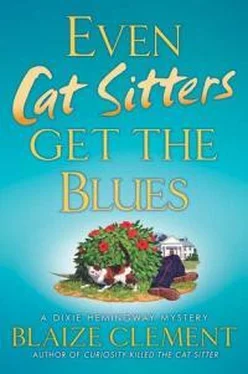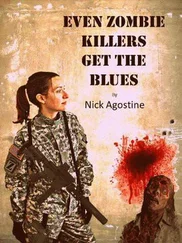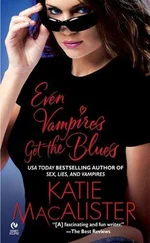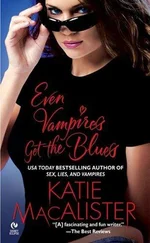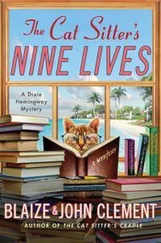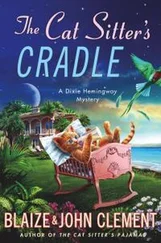I took the southern corridor back to the living room and slipped out the front door without telling anybody goodbye. I wanted to leave Ken Kurtz’s house and never come back, but there was a good possibility Ziggy hadn’t eaten in at least three days, and I hadn’t seen anything that remotely resembled vegetables and fruit for him. Even though I’d been tricked into taking the job, I felt responsible for Ziggy. That meant getting him food.
Glumly, I clumped down the driveway past the crime scene investigators. I knew without having been there what they’d been doing. They had taken all their measurements and all their photographs. They had gone over every inch of the guardhouse and its surround for fibers, stray hairs, or latent prints, any minutiae that might point them toward the killer. They had slipped the corpse into a body bag and zipped it shut, and the body had been taken to the Medical Examiner’s pathology lab for autopsy. Now technicians were widening their search, walking in slow circles around the grounds, looking for a weapon, shell casings, bullets, footprints—anything they could use to solve the crime.
Like them, I kept my eyes on the ground in front of me. I was minding my own business. This murder investigation had nothing to do with me, and as soon as I got food for Ziggy I was out of there.
On the way to the Crescent Beach Market, I met several cars with big red velvet Christmas bows attached to their hoods. On every street, Christmas stuff had suddenly appeared all over the place. Wreaths on doors, red velvet ribbons tied to outside security lights, baskets of poinsettias at every doorway. It was as if people had looked at the calendar and panicked when they saw we were only twelve days away from Christmas. Either all the Jews and Buddhists and agnostics and atheists on the key had converted, or there was a cosmic conspiracy to make me look Christmas square in the face.
Even in the best of circumstances, Christmas on Siesta Key has a surreal quality. We know from TV shows what a real Christmas is like. That’s when families gather in the big house where they grew up, where their dying or divorced-but-friendly parents have festooned everything in sight with swags of fir, and where everybody ends up outside in the snow whooping like kids and rediscovering the true meaning of Christmas. We can never have that. On Siesta Key, our fir swags are fake, our snowmen are Styrofoam, and the closest we can come to a snowball fight is to kick sand at one another.
To children, of course, Christmas is Christmas no matter where it happens, and that was really what was causing my heart to ache. It would be the fourth Christmas since Christy had been killed. She had been three when she died, old enough to be thrilled with writing letters to Santa and sharing Christmas secrets and going shopping for presents for the people she loved. Every Christmas since she died has been a day of pain for me. For that matter, so has Valentine’s Day and Mother’s Day and Father’s Day and Thanksgiving and Easter. All those holidays bring memories of Todd and Christy, and there have been times when I thought my heart would burst from them.
The best holiday is New Year’s because it isn’t imbued with images of children and loving families like all the others. Anybody can participate in New Year’s. Old people who haven’t seen their ungrateful progeny in years can still raise a glass to toast a new beginning. Single rejects who haven’t had a date in decades can still see another year of possibilities opening like a portal to a deodorant ad of fields of flowers while they run in slow motion into the arms of a new beloved.
On all the other holidays, I stay to myself and dull the memories of Todd and Christy by thinking of new ways to groom belligerent cats or fresh approaches to flea dips. But on New Year’s Day I live it up. I drink champagne and eat black-eyed peas and watch big men on TV chase a football and knock each other down. And at the end of the day, I look in the mirror and say, “Good girl, Dixie, you made it through another year. Now do it again.”
But first I had to get through Christmas.
Outside the market, a Salvation Army Santa was ringing a bell with cheerful deliberation and calling out “God bless you” to people tossing coins in his pot. I didn’t exactly say “Bah, humbug,” when I passed, but that was how I felt.
Inside, “Jingle Bells” was playing. I tried to ignore the music while I filled a basket with kale, turnip greens, bok choy, escarole, collard greens, romaine, parsley, and yellow squash. As I hotfooted it to the TEN ITEMS OR LESS line, the music changed to “Here Comes Santa Claus.” If I had to listen to that all day long, I’d be a blithering idiot.
Ahead of me, a white-haired woman was telling the checker that she and her husband had started the trip from Oregon to Sarasota this season via a cross-Canadian train ride.
She said, “It was my first train trip,” and in an instant I was six years old and holding my mother’s hand while we edged our way down a train car. Michael was behind me with his eight-year-old face set in stern, disapproving lines. It had been the Christmas season then, too. Our mother had wakened us early, with an exuberant giddiness that meant she’d already been drinking, and told us we were going on a trip. An adventure, she called it, but we both knew she was really taking us away from our father. The adventure came after she sobered up and found herself stranded in a little town in Georgia with two hungry kids and not even enough change in her purse to call home. It had been Michael who took control. He had marched up to a Salvation Army Santa at the train station and said, “My little sister and I need help. Our mother is sick and we have to take her home.”
I think that was the moment our mother became afraid of Michael’s strength and capability. It was also the moment when I knew I could always depend on him.
I hadn’t thought about that train trip in ages, or about my mother. Just the possibility that I might be shirking responsibility like she’d always done was enough to jerk me to attention. As the checkout line moved forward, I stacked Ziggy’s veggies on the conveyor and resolved to do what I had to do and not whine.
On the way out, I folded a five-dollar bill and put it in the Salvation Army Santa’s pot. Not that I’d suddenly come down with the Christmas spirit, it was just the memory of that first Salvation Army Santa and how kind he had been. Maybe my five dollars would help some other stranded kids get home.
It was nearing noon and I’d been up since four o’clock without caffeine or food. Not having Ziggy’s ability to store fat under my dewlap when food was scarce, I made a detour to the village and went into Anna’s Deli, where the woman at the counter had hair almost as red and carelessly abundant as Gilda’s.
I said, “I need a surfer sandwich bad.”
Even as I spoke, part of my mind considered the odds of running across two women with messy red hair in one morning. I even considered the possibility that the entire morning was a dream, and that red-haired women were in it to symbolize something I needed to remember.
The woman must have sensed that I was spacing out because she barked out my order to the sandwich maker like a drill sergeant.
I said, “I need coffee, too.”
“Sure you do,” she said, in the tone one uses with a two-year-old about to have a tantrum or with a mental patient off her medication.
I wondered if my eyes were as big and white and staring as they felt.
While the sandwich person laid thin slices of ham, turkey, Swiss, and cucumber on thick marble bread, I thought of Ken Kurtz lying on his black satin sheets. He hadn’t had breakfast either. For all I knew, he hadn’t eaten in weeks.
Читать дальше
